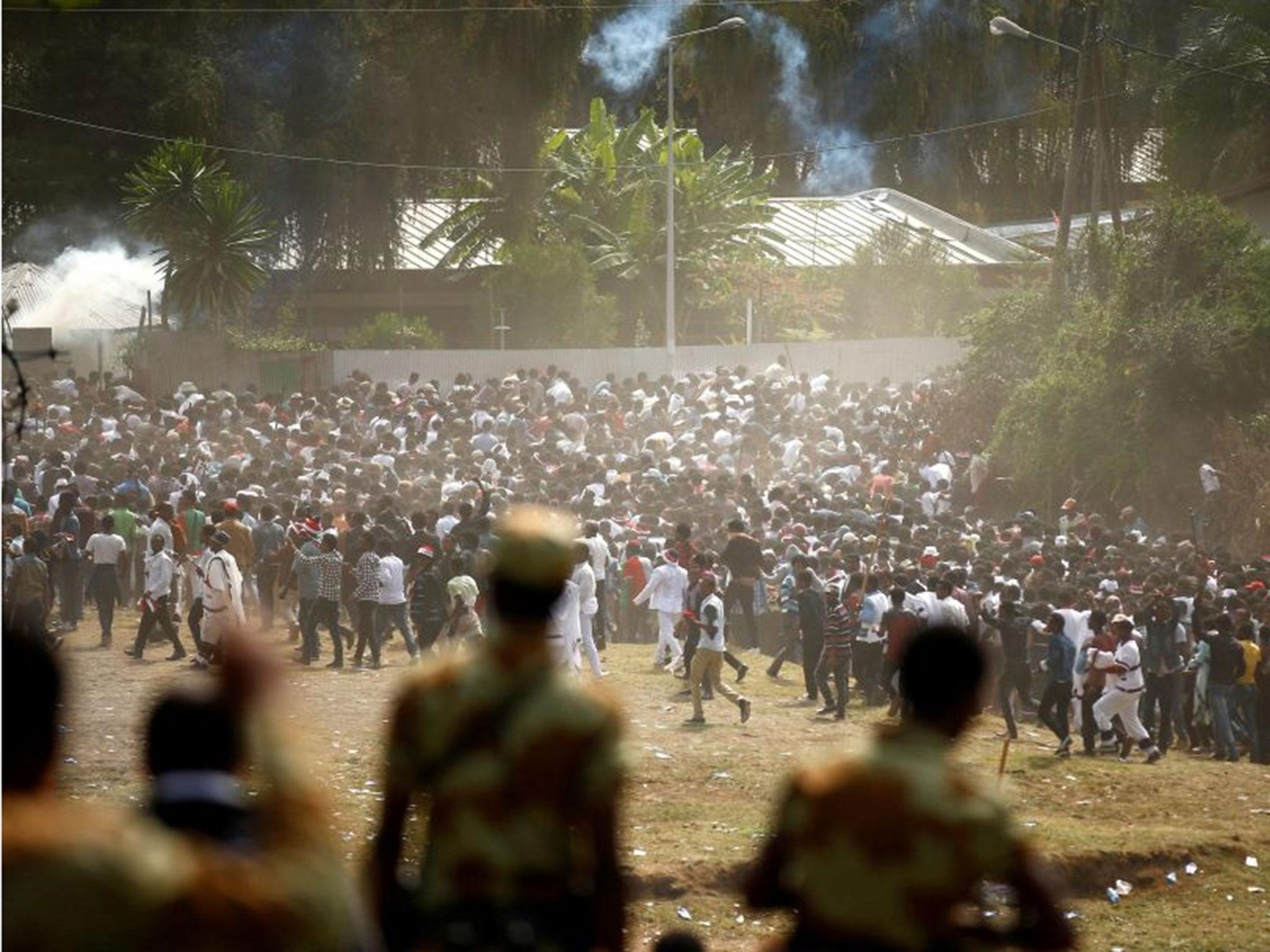Ethiopia stampede: Violent clashes continue as death toll from Oromia disaster 'rises to more than 100'
Accounts vary of how the stampede became so deadly

Your support helps us to tell the story
From reproductive rights to climate change to Big Tech, The Independent is on the ground when the story is developing. Whether it's investigating the financials of Elon Musk's pro-Trump PAC or producing our latest documentary, 'The A Word', which shines a light on the American women fighting for reproductive rights, we know how important it is to parse out the facts from the messaging.
At such a critical moment in US history, we need reporters on the ground. Your donation allows us to keep sending journalists to speak to both sides of the story.
The Independent is trusted by Americans across the entire political spectrum. And unlike many other quality news outlets, we choose not to lock Americans out of our reporting and analysis with paywalls. We believe quality journalism should be available to everyone, paid for by those who can afford it.
Your support makes all the difference.Violent clashes continued in Ethiopia as the relatives of dozens killed during a protest on Sunday flocked to the scene of the deaths, creating further tension.
The government says 52 people are confirmed to have died as police dispersed the crowd at a huge religious festival in Bishoftu, in the Oromia region.
Officials say anti-government protesters were chanting and throwing projectiles at a stage where religious leaders were speaking, and that those who died were crushed to death in a stampede trying to flee police tear gas and guns fired in the air.
But a local doctor says the death toll as likely to be more than 100, and that the stampede was worsened by special forces personnel driving at the crowd with pick-up trucks and armoured vehicles.
As many as 200 people are reported to have been arrested in the wake of the crush, only adding to the unrest in the region which has festered since November 2015.
"Some people tried to come out en masse this morning to protest the deaths of holiday-goers on Sunday and also demand the release of people arrested during the celebrations," Nimona Negash, a tuk-tuk driver in Bishoftu, told the Associated Press.
Speaking on Monday afternoon, he said he was not aware of any further deaths, but the police are reported to be using live ammunition in a bid to restore order.
“Today's protesters were peaceful but dispersed by police violently. I'm not aware of any deaths this morning, but it was violent. But I'm aware of live bullets used this morning in other vicinities of this town,” he said.
Many of those who died appear to have fallen into large ditches, and the effort to recover bodies from the scene continued well into Monday.
Speaking to Bloomberg, Dr Fedesa Mengesha said that of the 50 bodies he alone had personally examined, none had died from bullet wounds.
“Around 100 people died and some people are saying there are also a lot of people buried under water,” he said. “We are expecting more.”
Crowds had gathered in Bishoftu to celebrate the annual Irrecha thanksgiving in the town, 27 miles from the capital Addis Ababa.
The head of the Oromia region's spokesman's office, Fikadu Tessema, accused some protest groups of trying to "continue the violence that they orchestrated on Sunday".
He said they were trying to portray the stampede as caused by live bullets fired by government forces.
"I can assure you 100 per cent that all the 52 victims died of a stampede and didn't have bullet wounds on their bodies," he said.
The Oromia region has seen anti-government protests and a violent, sometimes deadly state response for nine months now, as the country’s largest single ethnic group - the Oromo - call for greater political freedoms and the release of political prisoners.
They were joined in protest by the neighbouring Amhara region in July, and Human Rights Watch says more than 500 people have been killed during the unrest as a whole. The government disputes those figures.
Ethiopia is an important strategic ally for the West in the region, but the US recently raised the issue of excessive use of force by the police and security forces in recent clashes, calling the situation “extremely serious”.
"The current situation in Oromia is not out of control,” Mr Tessema told AP on Monday. “We are taking measures to bring back our peace."
Join our commenting forum
Join thought-provoking conversations, follow other Independent readers and see their replies
Comments